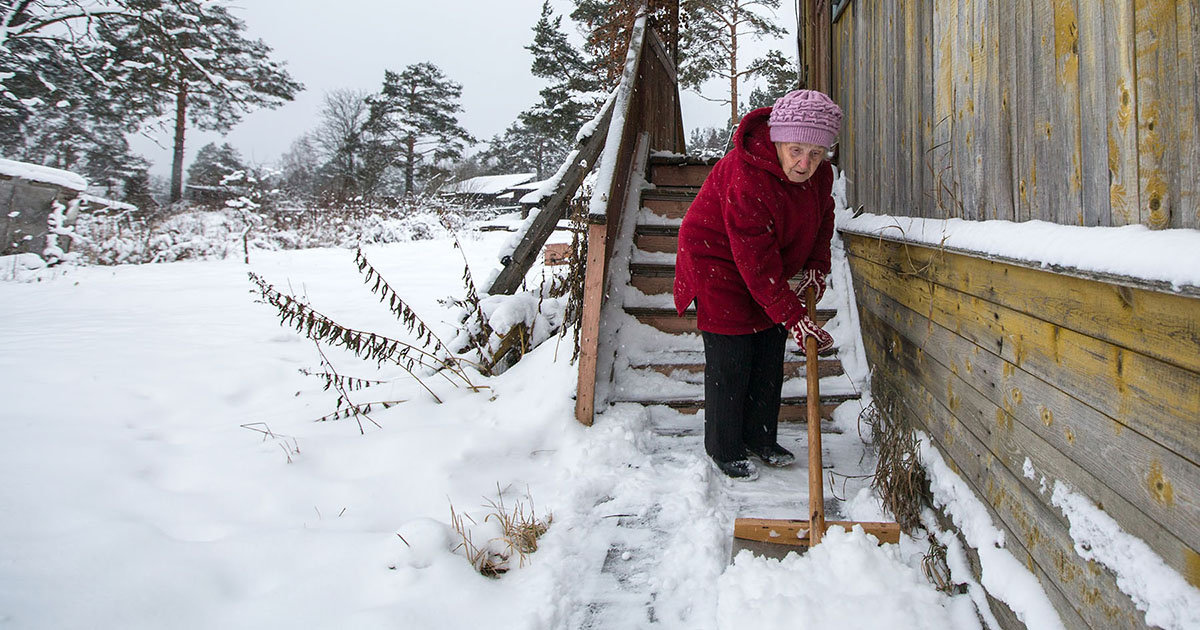Article by the Division of Emergency Preparedness and Response, Fairfax County Health Department
(Posted 2023 March)

 While normal body temperature does not change much with aging, it becomes harder for your body to maintain optimal body temperature as you get older. A consequence of variable weather patterns are extreme weather events such as heat waves and freezes. Such extreme weather events make us more prone to weather-related illnesses. As we approach seasonal changes, it is important to become aware of the most common health-risks:
While normal body temperature does not change much with aging, it becomes harder for your body to maintain optimal body temperature as you get older. A consequence of variable weather patterns are extreme weather events such as heat waves and freezes. Such extreme weather events make us more prone to weather-related illnesses. As we approach seasonal changes, it is important to become aware of the most common health-risks:
Cold Weather Preparedness
Hypothermia (body temperature below 95°F) is most common at very cold temperatures, but it can occur even at cool temperatures (above 40°F) if you become chilled from rain, sweat, or being in cold water. You can also get hypothermia while indoors if outside cold weather persists or when you are working in cold environments, such as a storage freezer.
Frostbite is caused by prolonged skin exposure to cold outdoors. When the temperature is 0°F or below, it takes about 30 minutes for exposed skin to get frostbite. At -15°F with even a little bit of wind, frostbite is possible within 15 minutes.
Impacts of heart disease including chest pain/angina, heart attack, and risk of stroke are heightened in the colder months, particularly if you have a history of low body temperature or have had hypothermia in the past.
Hot Weather Preparedness
Heat exhaustion is a warning that your body can no longer keep itself cool. You might feel thirsty, dizzy, weak, uncoordinated, and nauseated. You may sweat a lot. Your body temperature may stay normal, but your skin may feel cold and clammy.
Heat stroke is a medical emergency in which the body’s temperature rises above 104°F. Signs of heat stroke include fainting, confusion or acting strangely, not sweating even when it’s hot, dry, flushed skin, and a strong, rapid pulse, or a slow, weak pulse.
Heat syncope is a sudden dizziness that can happen when you are active in hot weather. If you take a heart medication called a beta blocker or are not acclimated to hot weather, you are even more likely to feel faint.
Make a habit of the following to be better prepared:
- Avoid sudden strenuous activity such as shoveling snow in the winter, or landscaping in the summer, if you are not used to doing them on a regular basis. Build your strength and stamina for physical activity slowly and consistently.
- Eat a healthy diet every day to make sure your body regulates your temperature with changing weather and has enough energy to keep you cool or warm.
- Make sure to stay hydrated, even when it is cold and limit your alcohol intake.
- Maintain an optimal temperature at home by season. In the cooler months maintain your home temperature between 68°F and 72°F. In the hotter months it is recommended to set your air conditioning between 72°F and 78°F.
- Take steps to manage stress and maintain awareness of any events that affect you emotionally. Incorporate mindfulness, breathing exercises, or meditation in your daily routine.
- Listen to your body, and if something feels different, make sure to let your healthcare provider know as soon as possible. *
*If you believe you are having a medical emergency, please call 9-1-1 immediately.
This article is part of the Golden Gazette monthly newsletter which covers a variety of topics and community news concerning older adults and caregivers in Fairfax County. Are you new to the Golden Gazette? Don’t miss out on future newsletters! Subscribe to get the electronic or free printed version mailed to you. Have a suggestion for a topic? Share it in an email or call 703-324-GOLD (4653).

